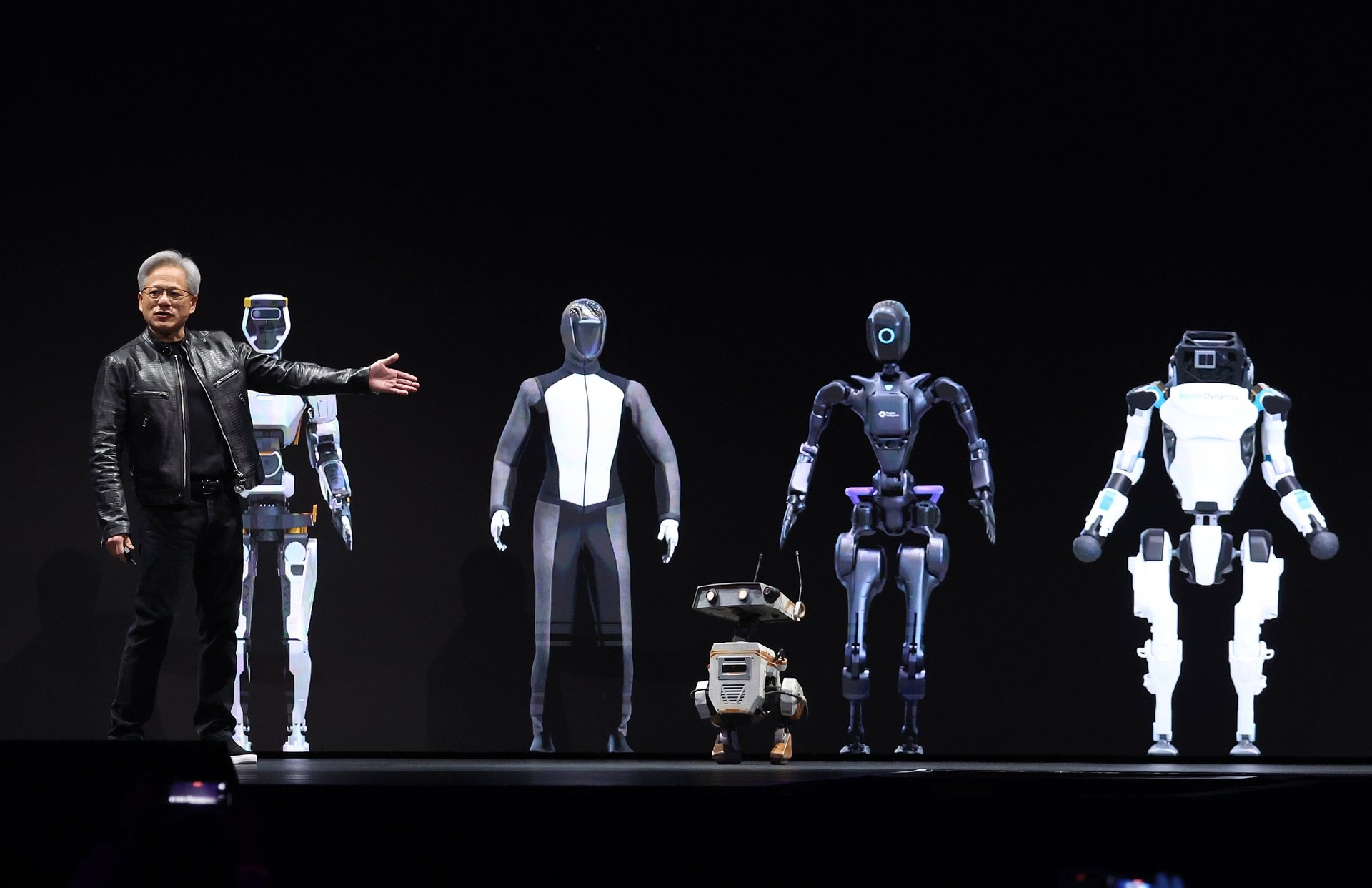🌍 Ready for robots
Plus: Ozempic in a pill?

Good morning, Quartz readers!
Suggested Reading
Here’s what you need to know
A new Wegovy competitor, in the form of a pill not an injection, can cut an average 6% of a patient’s weight in just 12 weeks. Structure Therapeutics’ GSBR-1290 is still in the experimental stage, but its stock jumped more than 50% Monday on news of early trial results.
Related Content
Paramount Global has reportedly reached an $8 billion deal to be acquired by Skydance Media, the film studio owned by Oracle founder Larry Ellison’s son David. RedBird Capital and KKR are partnering with Skydance. Next comes approval from Shari Redstone, chief of Paramount’s majority owner National Amusements.
Sam Altman’s secret investment stash may be a massive conflict of interest, with holdings worth $2.8 billion. Some of the companies in those holdings, such as Reddit, have lucrative deals with Altman’s own OpenAI.
Hertz says it will replace its CFO with the outgoing finance chief of troubled Spirit Airlines, as the car rental company struggles with a $440 million loss from its bet on a fleet of Teslas that renters couldn’t figure out how to drive.
Dr. Pepper is proud and loud in second place. That original craze has pushed the peppery cherry cola to a tie with Pepsi as America’s No. 2-selling soft drink brand — right behind, of course, Coke. C’mon, be a Pepper!
A trading software glitch temporarily cratered stock in Warren Buffett’s Berkshire Hathaway, sending its Class A shares down 97%. Trading was halted but later resumed.
Nvidia’s Jensen Huang says AI’s next wave is physical
Speaking ahead of COMPUTEX, an annual tech trade show in Taiwan, the Nvidia CEO said AI won’t be staying put in our phones and desktops. We are going to see “AI that understands the laws of physics, AI that can work among us.”
He means robots: “Robotics is here,” Huang said. “Physical AI is here. This is not science fiction, and it’s being used all over Taiwan. It’s just really, really exciting.”
Nvidia’s Isaac AI robot development platform is already being used to improve efficiency in factories and warehouses, and for research, development, and production of “tens of millions” of AI-powered autonomous machines and robots, including industrial arms and humanoids
GM’s self-driving cars are back— with drivers
Cruise, General Motors’ self-driving car subsidiary, officially resumed manual driving of its vehicles in Dallas to create maps and gather road information. The data will train Cruise’s driverless systems and allow it to return to autonomous driving.
It’s called “supervised autonomous driving,” meaning the cars drive themselves with a human ready and able to take the wheel if necessary.
Cruise was forced to suspend operations last October after one of its driverless cars dragged a pedestrian for roughly 20 feet after a separate, human-operated car hit them. The incident led to the revocation of its license to operate in California, a recall of its fleet, layoffs, and the departure of several executives.
There’s a lot at stake here for GM. Before the October incident, CEO Mary Barra said Cruise could generate $50 billion annually by 2030.
Surprising discoveries
Metallica’s European tour showcases renewable-energy big rigs — and their limits
Did you know we have two premium weekend emails, too? One gives you analysis on the week’s news, and one provides the best reads from Quartz and elsewhere to get your week started right. Become a member or give membership as a gift!
Our best wishes for a productive day. Send any news and comments to [email protected]. Today’s Daily Brief was brought to you by Peter Green.